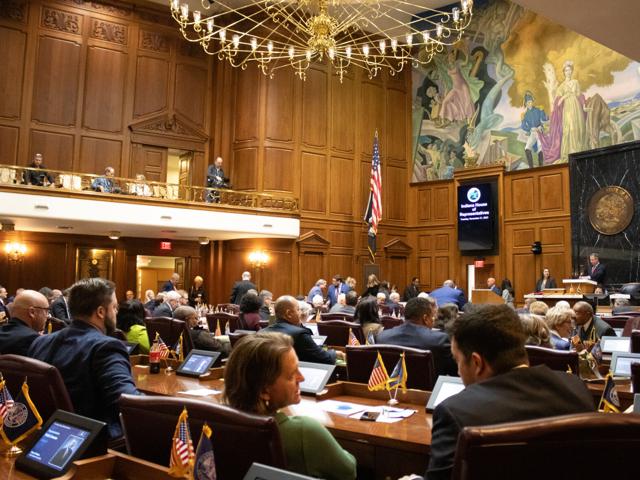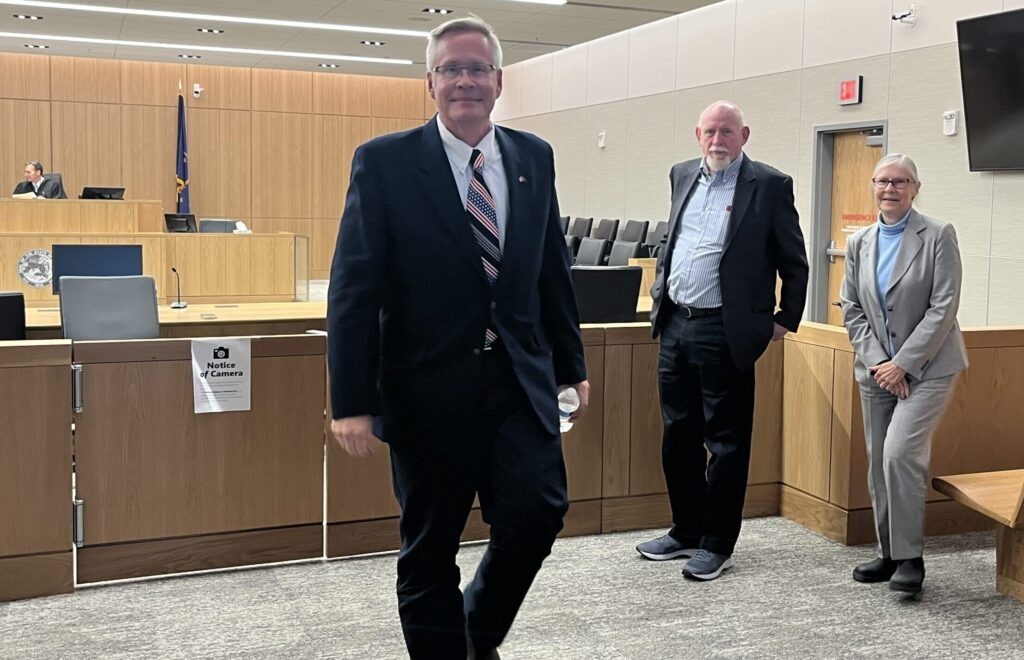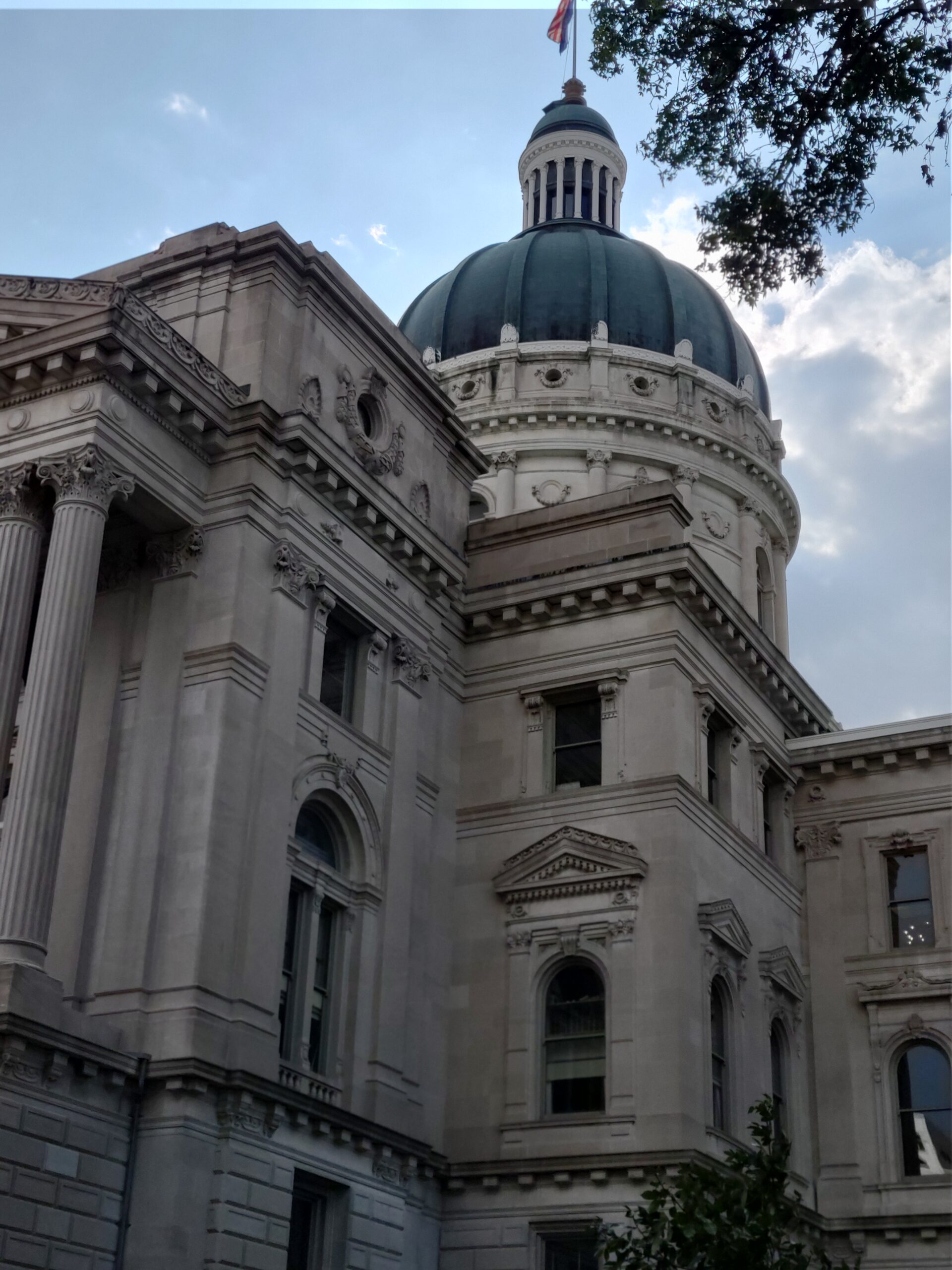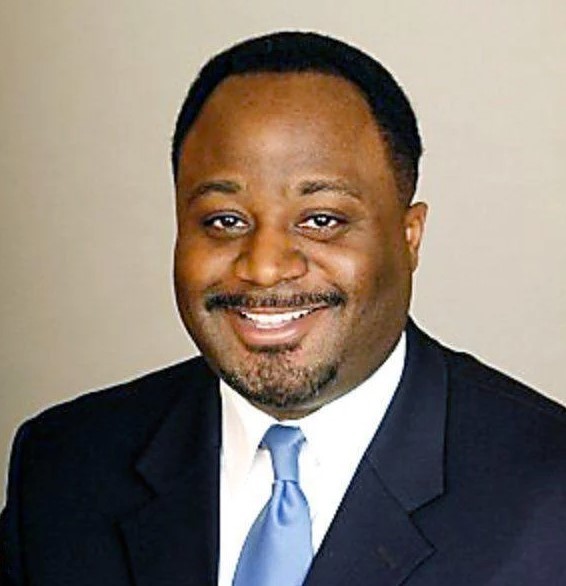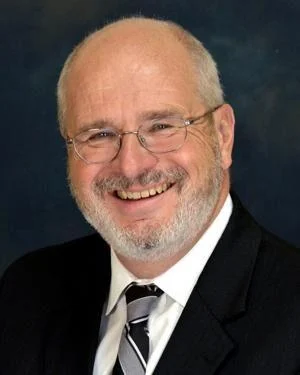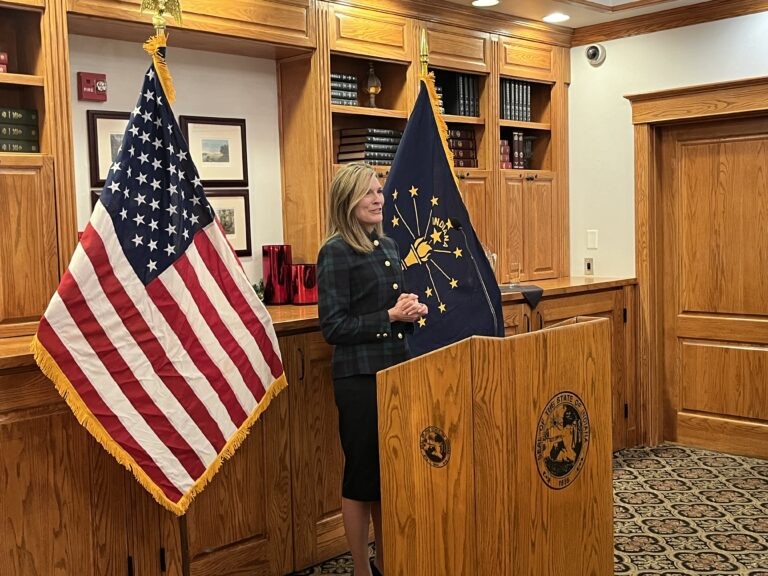The Indiana Statehouse was busy with legislators, reporters and constituents on Tuesday for Organization Day. Although the atmosphere was friendly and cordial, the agendas of the Republicans and Democrats showed some differences in concerns and goals.
House focuses on reading
Indiana’s House of Representatives met in the House Chamber for a short recap of 2023 and to open the 2024 session before the real legislative work starts in January.
Last year, bipartisan legislation was passed that helped improve student reading and test scores and will continue to be a focus this session, said Indiana House Speaker Todd Huston, R-Fishers, setting a goal of 95% reading proficiency by grade three.
“We have more work to do,” he said. “One in five Hoosier third-graders are struggling to read, and we know the impact of not being able to read by this critical age, as it leads to higher rates of incarceration and increased reliance on government assistance as they become adults.”
He also proposed expanding the Frank O’Bannon Grant and the 21st Century Scholarship to include programs that provide certifications in “high-demand, high-wage jobs.”
Indiana is no stranger to construction right now, but it could continue in 2024. Huston said I-65 and I-70 should be three lanes across Indiana, border to border—which was followed by widespread applause from House members.
The longest applause came after a statement regarding plans to pass legislation on antisemitic teaching and materials.
“We unanimously passed House Bill 1037 last year, authored by Chairman Chris Jeter to address antisemitic behavior on college campuses,” Huston said. “Sadly and disgustingly, the world is now witnessing the way through which students are being treated on so many campuses across the country and some even in Indiana.
“For this reason, we will once again pass Chairman Jeter’s legislation. Our Jewish students should know they will be safe on campus throughout Indiana and not be subjected to antisemitic teaching or materials.”
House Democratic leaders did not offer their agenda. The leadership did not speak on the House floor or hold a press conference afterward.
Differing agendas in the Senate
In his remarks in the upper chamber, Senate President Pro Tempore Rod Bray, R-Martinsville, sketched an outline of the Senate Republicans’ agenda for the upcoming legislative session, saying they were working “a number of things that are not quite formulated yet.”
However, he echoed Huston in advocating for the Senate to focus on reading proficiency. Also, he called for legislation to bring some relief to the state’s need for affordable child care and to address the cost of health care.
Speaking to reporters afterward, Bray linked the state’s reading proficiency problem with the high truancy rate. He cited a statistic that 25% of students across the state qualify as “chronically truant.”
‘It’s doesn’t take long to figure out if you’re not coming to school, you’re not going to get your reading, writing and arithmetic and you’re going to start to fall behind,” Bray said. “So, truancy has to be aligned with reading proficiency.”
He said the state has a system in place to address truancy. He pointed to the Indiana Department of Child Services as a resource for the state to use to provide services and pressure to parents of young children who are not regularly attending school while the juvenile justice system is available to work with truant teenagers.
“I think the question will be how much of this needs to be legislation and how much of these needs to be just a refocus on the execution of the laws that we have in place,” Bray said.
Conversely, Senate Democrats were reserved in supporting Republicans’ call for improving reading proficiency among third-graders and instead emphasized the need for the Statehouse to provide relief for working Hoosier families. During his speech on the Senate floor and at a press conference, Senate Minority Leader Greg Taylor, D-Indianapolis, hammered on the economic struggles of many in Indiana.
“The opportunity that we are looking at here is to help people care for their families, determine their own future and given them the freedom that they deserve as residents of the state of Indiana. We don’t need to bog down this session with things like (critical race theory) or how we feel about affirmative action that came down from the (U.S.) Supreme Court,” Taylor said, referring to the U.S. Supreme Court’s 2022 ruling in Students for Fair Admissions, Inc. v. President and Fellows of Harvard College, which effectively ended race-conscious college admissions. “We don’t have to do that.”
Taylor and his colleagues Sens. J.D. Ford and Andrea Hunley continued to keep the focus on kitchen-table economics at a press conference convened outside the Senate chamber. The three highlighted rising housing costs exasperating the affordability crisis, rising utility bills, the high price of groceries and the high cost of health care.
“There is an affordability crisis in Indiana,” Ford said. “Our residents need us to step up to fight for an economy that works for more than just the business class. It’s time for Indiana’s economy to also work for the people of Indiana.”
Hunley pointed to the state’s limited child-care capacity as causing problems for parents and employers. She advocated for changing the licensing requirements for child-care facilities and guaranteeing a living wage to child-care workers.
Also, she said Senate Democrats would be pushing for paid family leave for all Hoosiers.
“In a state where we have a near total abortion ban, there is no excuse not to have critical program available to support Hoosier families,” Hunley said. “We say we believe in supporting Hoosier families—then let’s really do that.”
Division over allowing ballot initiatives
The sharpest divide between Senate Republicans and Democrats came over the issue of ballot initiatives.
Taylor framed the issue as giving Hoosiers a voice. He said 26 other states allow citizens to create ballot initiatives so they can seek to address the concerns in their everyday lives. He hinted the supermajority in the legislative is out of step with the majority of Indiana residents, saying more than 60% of Hoosiers support access to reproductive rights and 85% support cannabis legalization..
“Legislatures refusing to allow everyday Hoosiers to have their voices heard should not be something that we continue to accept in the state of Indiana” Taylor said, adding his caucus has prepared legislation to establish a pathway for state residents to compile signatures and get initiatives on the ballot.
Ford contended Hoosiers’ voices were even more muted after the 2021 redistricting process in Indiana, which he said left the legislative districts across the state “severely gerrymandered.” As a result, he said many of his Senate colleagues do not have to even listen to their constituents in order to win reelection.
“It’s democracy,” Ford said. “It’s democracy here in our state. Let the people have a say in what they want.”
Bray shrugged off the idea of permitting ballot initiatives in Indiana.
“The (Indiana) Constitution doesn’t allow that,” Bray said. “We pass laws here in the General Assembly, and we hope and ask that voters hold us accountable for the policies that we have.”
Taylor countered that the state’s constitution does not have to be amended to allow for ballot initiatives. He said the legislature could pass a bill that set the number of signatures needed for an issue to get placed on the ballot.
“This shouldn’t be a scary concept. It should not be scary,” Taylor said. “We should want to hear from our constituents. Everyone should want to hear from our citizens.”

